Cerebral anemia is becoming one of the common health problems in young people due to work pressure, prolonged stress and sedentary lifestyle. When the amount of blood and oxygen to the brain is insufficient, nerve cells quickly become "starved" of energy, leading to headaches, dizziness, insomnia, decreased concentration, and even increased risk of stroke if the condition persists.
Experts at Harvard Medical School say diet plays a big role in maintaining brain health. Foods rich in iron, B vitamins, omega-3, polyphenols and natural nitrates can support blood circulation, helping the brain to be better nourished.
Causes and signs to note
According to Cleveland Clinic, cerebral ischemia often comes from vascular diseases such as atherosclerosis, thrombosis, cervical spondylosis causing arterial compression, or vasoconstriction due to stress or sudden cold.
Initial symptoms are often vague such as headache, dizziness, vertigo, tinnitus, accompanied by insomnia, memory loss, decreased concentration, numbness in the body, aching limbs, and loss of balance.
When these signs recur frequently, patients should see a doctor early to screen for stroke risk.
Foods that help improve brain circulation
1. Beef - a rich source of natural iron
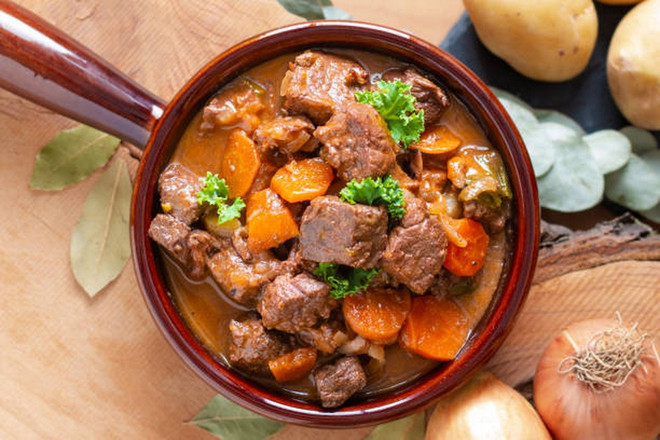
Beef is a top candidate for blood replenishment thanks to its high content of heme iron (the most easily absorbed form), along with vitamins B6, B12 and zinc - essential elements for red blood cell production.
According to Harvard Health Publishing, every 100g of lean beef provides about 2.5mg of iron and nearly 20g of protein, helping the body regenerate blood and increase energy for brain cells.
2. Salmon and fatty fish - nourish nerve cells
Fatty fish such as salmon, herring, and sardines are rich in omega-3s, especially DHA, a component of nerve cell membranes. Johns Hopkins Medicine points out that omega-3s help reduce vascular inflammation, improve brain circulation, and reduce the risk of stroke.
Additionally, salmon is rich in vitamins D and B12, two important nutrients for maintaining healthy nerve function.
3. Egg yolks - a "warehouse" of vitamin B and iron

Egg yolks contain iron, folate, vitamins B2, B6, B12 and choline - nutrients recommended by the National Institutes of Health (NIH) for brain health. Eating 3-5 eggs a week helps increase blood production, improve memory and reduce fatigue.
4. Spinach - green "superfood" for brain circulation
Spinach is rich in iron, folate and vitamin K - three factors that help form blood and increase the elasticity of blood vessels.
According to Harvard TH Chan School of Public Health, folate in spinach also helps reduce homocysteine - a compound linked to the risk of cerebral ischemia and stroke.
5. Broccoli - naturally increases blood circulation
Broccoli is rich in vitamin C, iron, magnesium and powerful antioxidants. The polyphenols in this vegetable help protect brain cells from free radical damage, while also stimulating the production of nitric oxide - a compound that helps dilate blood vessels, increasing blood flow to the brain.
6. Celery - a "good friend" of blood pressure and blood vessels
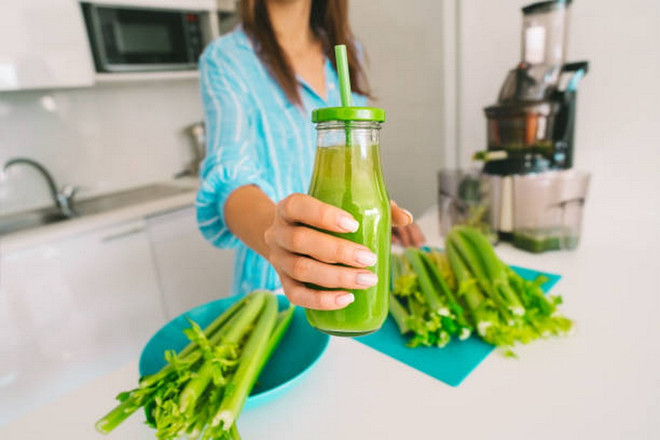
Celery contains a lot of natural nitrates, which can be converted into nitric oxide in the body, helping to dilate blood vessels and improve blood circulation. Cleveland Clinic recommends adding celery regularly to dishes or juices to support the cardiovascular system and reduce pressure on the brain.
7. Pomegranate - red fruit good for blood production
Pomegranates are rich in iron, vitamin C, polyphenols, and anthocyanins—antioxidants that help increase iron absorption and protect brain cells from oxidative stress. A study from Johns Hopkins University found that pomegranate juice can improve cerebral blood flow and boost cognitive performance in older adults.
8. Plums and raisins - help increase hemoglobin
Both prunes and raisins contain high levels of iron, magnesium and vitamin C - a trio that helps increase iron absorption and promote hemoglobin production. Just 4-5 prunes or a small handful of raisins a day can help anemic people improve brain circulation significantly.
9. Strawberries and raspberries - increase iron absorption, antioxidants
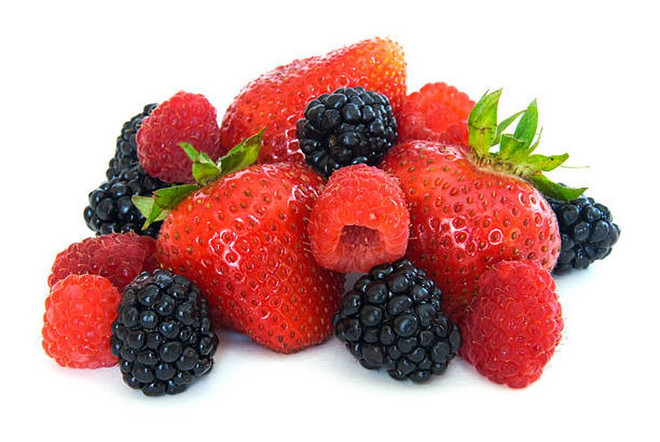
These two berries contain high levels of vitamin C and flavonoids, which help the body absorb iron better and strengthen blood vessel walls. According to Harvard Health, a diet rich in berries can also reduce the risk of stroke by 30% by improving the function of blood vessel endothelium.
10. Nuts and beans - add magnesium, polyphenols
Nuts such as almonds, walnuts, soybeans, and lentils provide magnesium, iron, folate, and polyphenols - nutrients that help maintain stable blood flow and reduce vascular inflammation. A handful of nuts, about 30-50g per day, is considered a "natural medicine" for memory and brain circulation.
Proper supplementation - the key to a healthy brain
Nutrition experts from the World Health Organization (WHO) recommend that adults should supplement at least 18mg of iron/day (women) and 8mg (men), combined with vitamin C to increase absorption.
In addition to diet, maintaining a healthy lifestyle also plays an important role, you should:
- Exercise 30 minutes a day to stimulate blood circulation.
- Get enough sleep and avoid prolonged stress.
- Limit alcohol, tobacco and foods high in saturated fat.
- Regular health check-ups to detect early cerebrovascular disorders./.
Source: https://www.vietnamplus.vn/nhung-loai-thuc-pham-tot-nhat-cho-nguoi-thieu-mau-nao-post1072784.vnp



![[Photo] Ho Chi Minh City Youth Take Action for a Cleaner Environment](https://vphoto.vietnam.vn/thumb/1200x675/vietnam/resource/IMAGE/2025/11/04/1762233574890_550816358-1108586934787014-6430522970717297480-n-1-jpg.webp)
![[Photo] Ca Mau "struggling" to cope with the highest tide of the year, forecast to exceed alert level 3](https://vphoto.vietnam.vn/thumb/1200x675/vietnam/resource/IMAGE/2025/11/04/1762235371445_ndo_br_trieu-cuong-2-6486-jpg.webp)
![[Photo] Comrade Nguyen Duy Ngoc holds the position of Secretary of the Hanoi Party Committee](https://vphoto.vietnam.vn/thumb/1200x675/vietnam/resource/IMAGE/2025/11/04/1762234472658_a1-bnd-5518-8538-jpg.webp)
![[Photo] The road connecting Dong Nai with Ho Chi Minh City is still unfinished after 5 years of construction.](https://vphoto.vietnam.vn/thumb/1200x675/vietnam/resource/IMAGE/2025/11/04/1762241675985_ndo_br_dji-20251104104418-0635-d-resize-1295-jpg.webp)





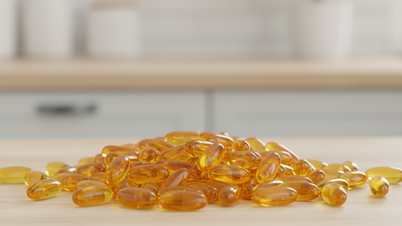


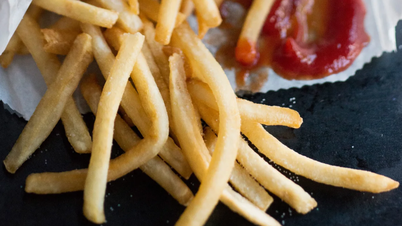




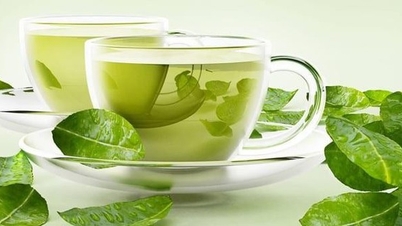


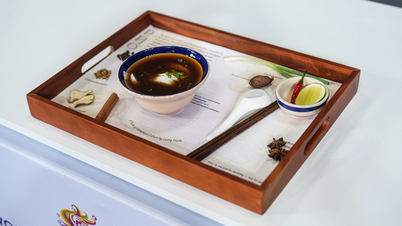





















































































Comment (0)